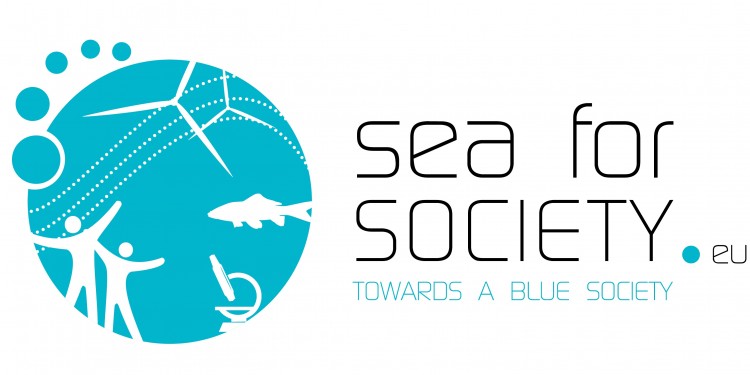Sea for Society
EU decision-makers and stakeholders gathered in the European Parliament to discuss the project “Sea for Society” and the Blue Society concept, which envisions a new governance model that aims to make the Ocean an integral part of society. A set of recommendations have been established to further promote and implement a Blue Society, and stakeholders showed their support by signing the Blue Society Stakeholder’s Commitment advocating the transition towards a Blue Society.
Ricardo Serrão Santos MEP gathered policy-makers, the scientific community, youth and other stakeholders on 18 November to present the outcome of the project “Sea for Society” along with a set of recommendations moving forward to enrich the concept of a Blue Society putting the Oceans at the heart of decision-making. “Sea for Society” is a three year mobilisation and mutual learning action plan, funded by the Commission/DG Researh & Innovation FP7, engaging citizens and stakeholders across Europe on societal issues related to the Ocean.
The meeting highlighted the importance of our Ocean as it provides a multitude of services including oxygen, food, raw materials as well as being an important climate regulator. It was explained by Manuel Cira, Nausicaá that the project included consultations throughout Europe engaging over 500 stakeholders and young citizens in workshops, and the mobilisation activities have so far reached 200 000 people. A Blue Society Expert Group was also established, which has analysed the outcomes of the consultation phase and has developed recommendations for improved Ocean governance and research. Francois Simard, IUCN Global Marine and Polar Programme explained that “common responsibility, common heritage is the guiding principle of a blue society” providing the backdrop for the Blue Society goals.
The need to increase education and outreach was underlined by all participants as awareness and more basic knowledge about the Ocean is needed among the general public, industry and decision-makers. It was pointed out by Tiago Pitta e Cunha, Cabinet of the President of Portugal that the health of the Oceans is underestimated and that “humans live in a world separate from the Oceans”. Participants called for the need to include Ocean literacy in curriculum as well as the need to effectively communicate research results to decision-makers and promote behavioural changes.
The need for interdisciplinary research was stressed and Philippe Galiay, European Commission outlined that Horizon 2020 recognises that “science and society are interlinked” and in order to have a systemic approach “responsible research and innovation is needed, working with science for and with society”. The importance of science was also stressed by Niall McDonough, European Marine Board, underscoring that “science is a critical component of the evidence base that we do have to manage our Oceans”also stressing the “need for a more system-oriented interdisciplinary approach”.
Partnerships and collaboration were underlined as essential in order to achieve a new Ocean global governance system. Puri Canals from MedPAN highlighted that they have been successful in identifying the gaps hindering organisations from working together and how to overcome them by “building trust and working in a systemic manner”.
Participants called for more effective enforcement as well as integrated policies; they encouraged the creation or reinforcement of adapted mechanisms and dedicated agencies, to foster marine research and innovation and a better maritime governance, at regional, national and European level.
It was pointed out that the EU should be at the forefront of creating a Blue Society and must put more emphasis on the contribution of natural capital, economic deterrents and cross-sectoral collaboration across policy sectors. The Sea for Society project also involved youth groups in its activities, which took part in the discussion through a representative, who underlined that youth groups “want a system of governance which respects the imperative needs of human society and our planet, a system which encompasses the Blue Society”. The presence of the youth in the project was widely acknowledged and esteemed by the other speakers.
The need to recognise the role of the Ocean at COP21 was stressed as it is not given its due importance. It was underscored by Francis Vallat, European Network of Maritime Clusters that “politicians and scientists must acknowledge at a global level the Oceans’ pivotal role as the most important climate regulator in the world”.
The meeting was concluded by the signing of the Blue Society Stakeholder’s Commitment, which was signed by organisations from across Europe supporting the vision of a Blue Society and the need to continue to work in dialogue and partnership to improve human-Ocean dynamics globally.
The conference was hosted by Ricardo Serrão Santos MEP and Co-Chair of the Working Group “Biodiversity and Ecosystem Services” of the EP Intergroup “Climate Change, Biodiversity and Sustainable Development”.



